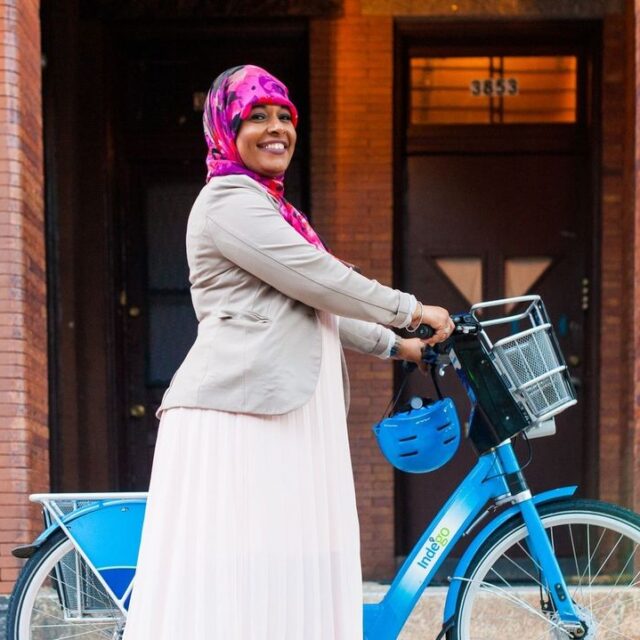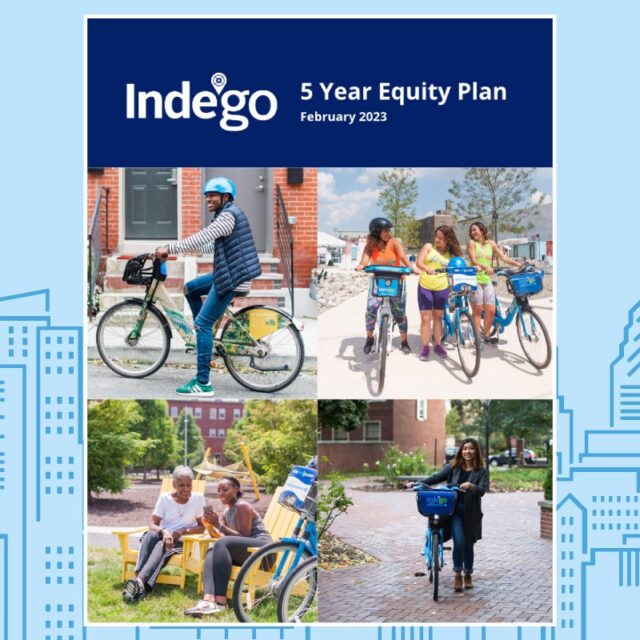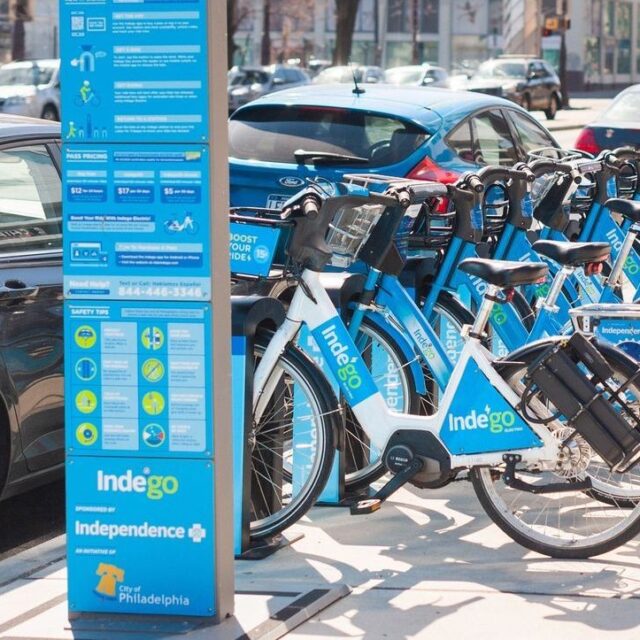Indego’s Mini-Grants Help Build Trust and Community
by Kiran Herbert, Communications Manager
November 13, 2023
Through grants of up to $1,000, Philadelphia’s bike share system supports local community-based organizations. Crucially, a connection to bicycling isn’t required.
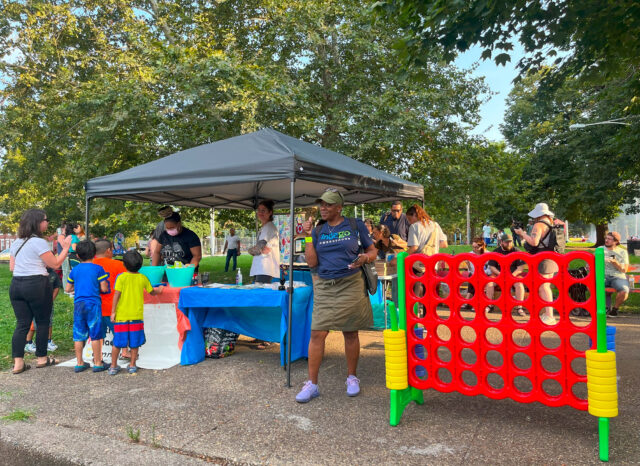
Anyone engaged in good community engagement work can tell you that listening to the people you’re trying to serve is key. Less talked about is how, in the process of listening, issues unrelated to what you talk about often emerge. For example, you might show up to gather feedback about a planned bike lane, but the local community might instead want to discuss the lack of sidewalks or the prevalence of street trash.
In Philadelphia, Indego, the city’s bike share system, has been conducting and incorporating community engagement since 2014, when it launched as a founding member of the Better Bike Share Partnership (BBSP). Over the years, it’s built up a cadre of ambassadors, led countless community bike rides, launched unique workforce development programs, and done extensive outreach, most recently around a substantial network expansion. Indego’s mini-grant program, which launched in 2015, doles out grants of up to $1,000 to local nonprofits and is an extension of all of its community engagement work. Crucially, a connection to bicycling has never been required to be eligible for funding.
“We didn’t want the application process to be too difficult because we heard this was a barrier for some partners, so we made sure the application was only one page and could be completed online or by hand,” says Waffiyah Murray, Indego program manager with the City of Philadelphia, adding that many early projects — say coat drives of school supply giveaways — eschewed any connection to bicycling.
The mini-grants were originally a way to provide financial support to local nonprofits around the holiday season. Initially piloted and funded using BBSP money, the program has since been maintained by city funds dedicated to Indego outreach and education program support. Over the years, the program itself has also evolved, though the initial sentiment remains: The grants are a way to reach out to communities and invest in them before going in to talk about bike share.
“We want folks to understand that we’re investing in the community, and not just in our bike share locations,” says Meghan Alvarez, transportation engagement coordinator at the City of Philadelphia and the program’s manager. “What’s really impactful about these mini-grants is that they’re a way to introduce ourselves and Indego to communities.”
For the last few years, Indego has formalized its mini-grant process, holding at least one round every year. In 2023, there will be two rounds: One opened in June, and the second recently launched, with an application deadline of November 30, 2023. Any registered nonprofit providing services and resources in Philadelphia is welcome to apply. Indego typically selects 4-6 applicants and those that are successful will have a complete project proposal, community-based plans for the funds, and a history of providing impactful programming to their communities.
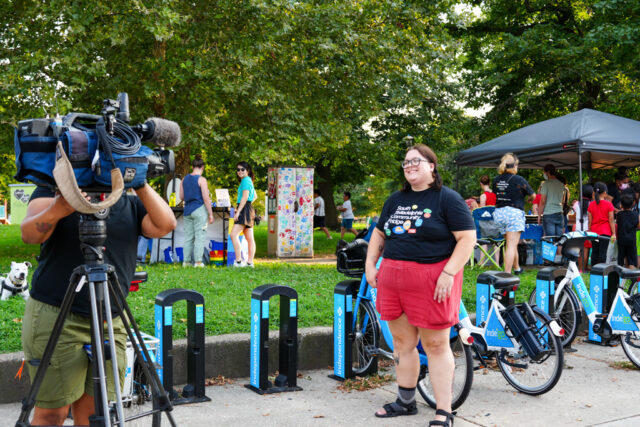
Importantly, funding can be used for any need that has been identified by the community, from recreational opportunities to resources to programming. Past grantees have included those serving the homeless, such as Doing Our Part Eclectically (DOPE), which used funding to host a standing hot meal, to others working with youth, and the South Philadelphia Community Fridge, a community-centered, volunteer-based organization dedicated to combatting food insecurity and inequality in our city through mutual aid. Others serve youth, such as You’re Beautifully Made, which hosted a summer camp in the Mill Creek Neighborhood of West Philadelphia.
While some organizations like DOPE opted not to do anything with bike share, others incorporated it to varying degrees. The Community Fridge invited Indego to share information and provide promotional codes for free rides, while You’re Beautifully Made gave Indego promo codes to its staff, collaborated with Indego staff to teach the kids about bike share and bike safety, and had someone from Safe Routes to School come and give a presentation.
“Whether programming is connected to Indego depends on the applicants,” says Alvarez, who asks each organization what they’re comfortable with in terms of promoting Indego. “Sometimes we give out fliers and merch, sometimes it’s more in-depth, and sometimes we just volunteer staff time. Indego doesn’t make sense for roughly 10% of the organizations that apply and that’s okay.”
For some grantees, the connection to bike share came about after they applied. In Philadelphia, gun violence is a big issue and one that particularly affects the well-being of many of the historically underserved areas where Indego focuses its outreach. Two of Indego’s past grantees are working to directly address mental health and wellness in Black communities. One is Voices By Choices, which hosts community roundtables and healing events for those who have lost people to violence. The other is My Brother’s Keeper Cares, which focuses on the mental health of young Black men and used its funding to put on an event to support collective healing, complete with poets, resource tables, and a presentation from Indego connecting mental health with bicycling and recreation.
“Gun violence is something no community can ignore and these grants allow us to address issues outside of transportation,” says Alvarez. “It’s one thing to put out a statement, another to put our money where our mouths are.”
For most grantees, $1,000 is an incredible sum that has a direct impact on their work. Applying for an Indego mini-grant remains easy, and Alvarez and her team offer support when it comes to tax paperwork like W9s and how to find their EIN number. From application to disbursement of funds, the whole process is meant to lift people up. Unsurprisingly, after receiving funding, many grantees are empowered to think bigger, applying for other funding sources and expanding their reach.
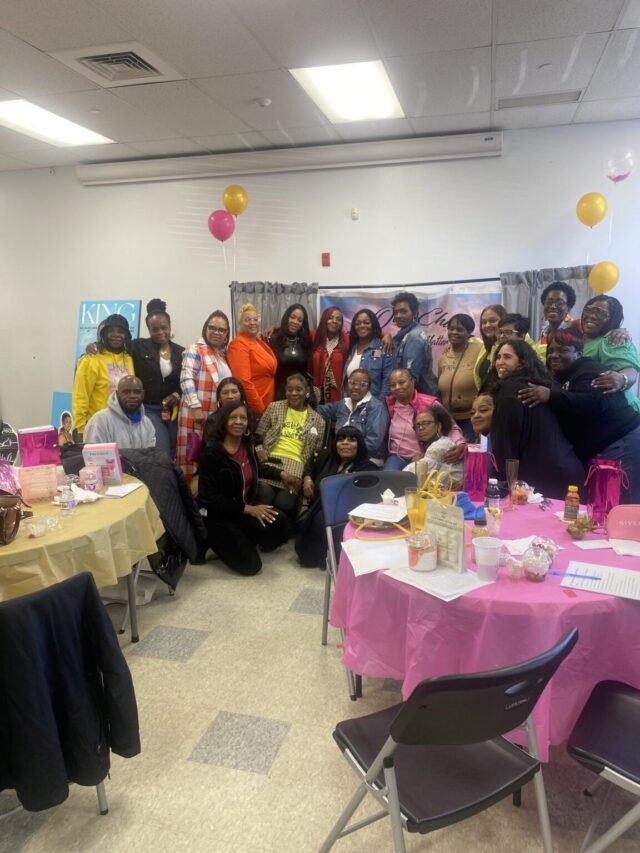
For Indego, the biggest upside of giving out these mini-grants is the groundswell of organic support they’ve garnered across Philadelphia.
“These grants have created a lot of buy-in for our regular programming and much of that is done through word of mouth and communities talking amongst themselves,” says Alvarez. “We now have champions across our service area but also across our expansion zone, so in
two years, when we’re there, we already have people ready to talk about Indego with their neighbors.”
By leading with a monetary investment, Indego has been able to build trust so that when it comes time to talk about bike share, people are receptive. In some cases, grants have been awarded in areas where Indego doesn’t yet have stations, allowing the system to build a network of allies and unofficial ambassadors for when they eventually expand.
“People recognize the work we do building community and relationships, and they see that it’s not all about bike share,” says Alvarez. “They see that we genuinely want to know about their community leaders, what work they’re doing, and what impacts their community the most.”
Shared micromobility systems don’t work without community buy-in and communities, especially historically underserved communities, don’t buy into organizations that aren’t aligned with their needs, desires, and circumstances.
“It’s imperative to remain supportive partners to the communities we serve whether bikes are involved or not,” says Murray. “For bike share outreach to be meaningful and effective, it must expand beyond just the bike.”
The Better Bike Share Partnership is funded by The JPB Foundation as a collaboration between the City of Philadelphia, the National Association of City Transportation Officials (NACTO), and the PeopleForBikes Foundation to build equitable and replicable bike share systems. Follow us on LinkedIn, Facebook, Twitter, and Instagram, or sign up for our weekly newsletter. Have a question or a story idea? Email kiran@peopleforbikes.org.

